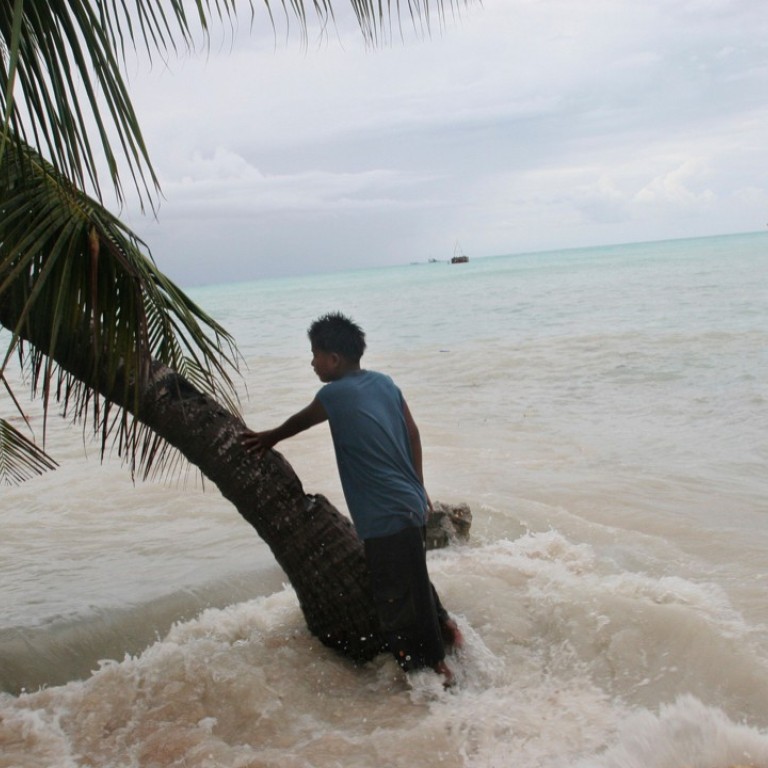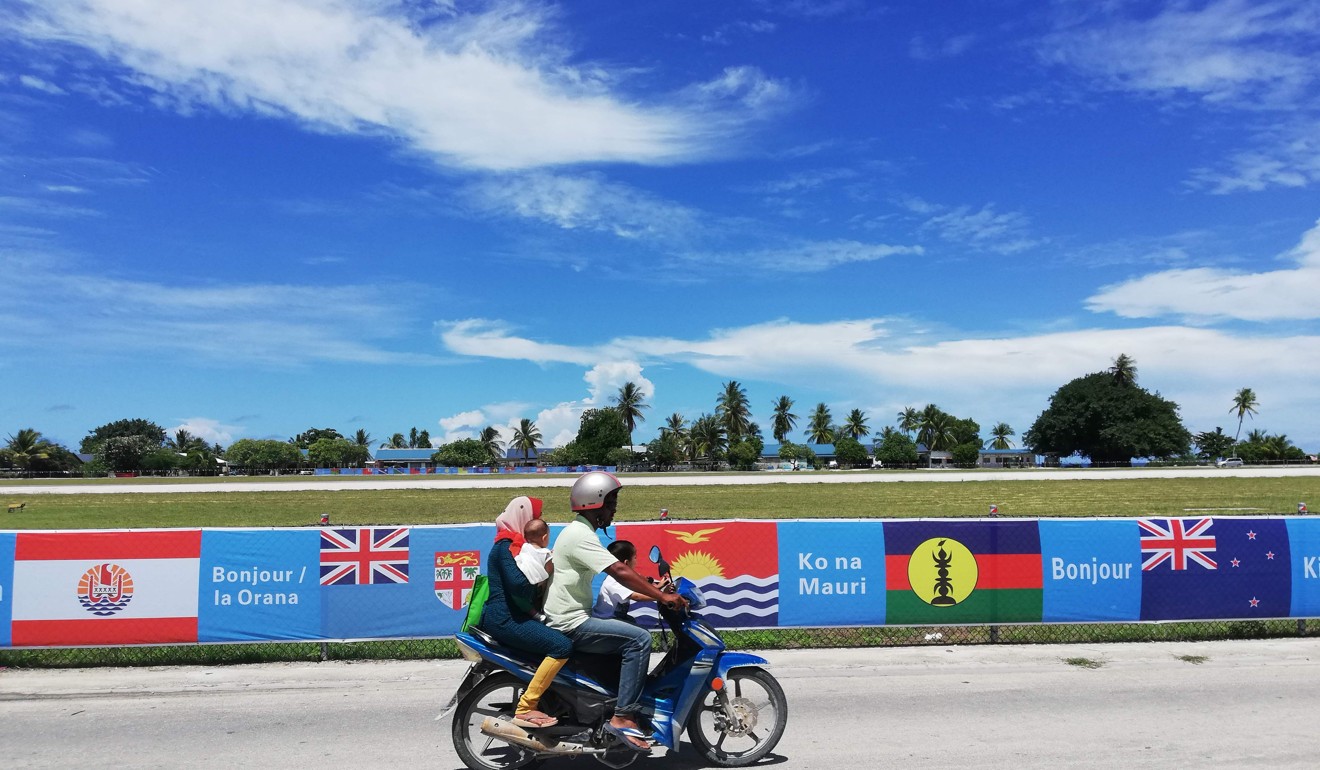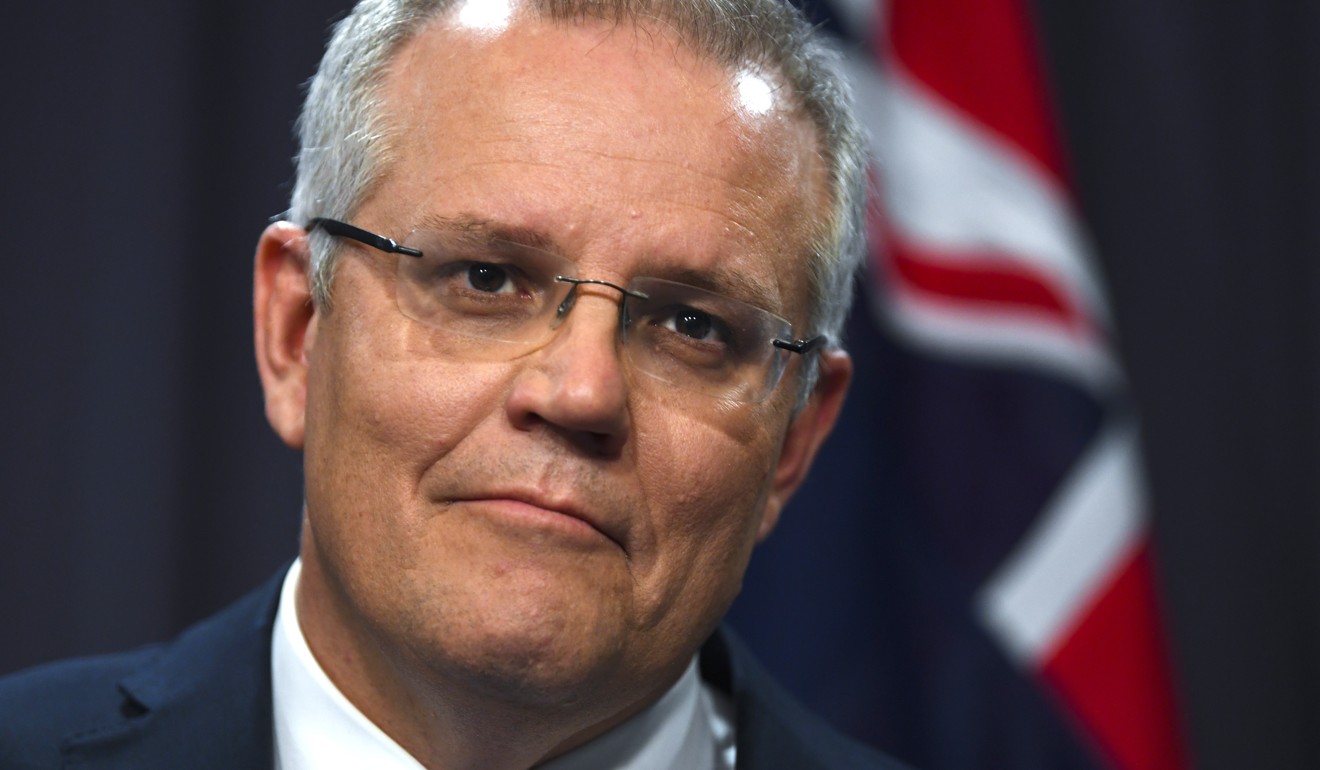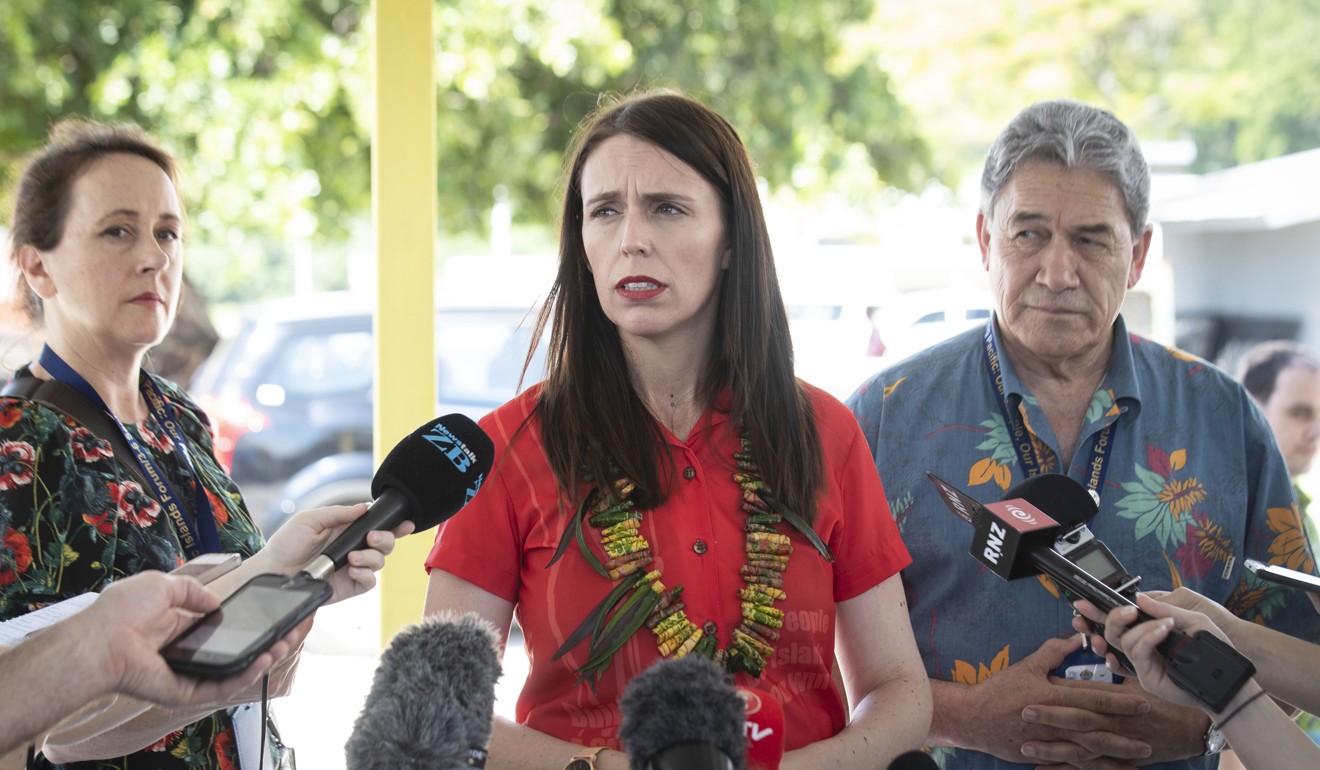
Australia signs declaration saying climate change ‘single greatest threat’ to Pacific
Pacific Islands Forum countries commit to implement Paris agreement – a declaration that is awkward politically for Australia, with new PM Scott Morrison at odds with his own government over that commitment
Climate change is the single greatest security threat to the Pacific, and all countries must meet their commitments under the Paris climate agreement, the 18 countries of the Pacific Islands Forum said on Wednesday.
The first assertion of the strongly worded Boe Declaration says all Pacific nations, including Australia, “reaffirm that climate change remains the single greatest threat to the livelihoods, security and well-being of the peoples of the Pacific, and our commitment to progress the implementation of the Paris agreement.
China, US and India ‘responsible’ for climate change ‘disaster’: Samoan PM
“Leaders reaffirmed the importance of immediate urgent action to combat climate change and … called on countries, particularly large emitters, to fully implement their … mitigation targets, including through the development and transfer of renewable energy, in line with committed time frames.”

Leaders of the Forum Islands countries also called for the US to return to the Paris agreement and the commitments it made under President Barack Obama.
The Boe Declaration said the security challenges being faced by Pacific nations were broader and more complex than in previous generations. The forum committed its members to addressing humanitarian assistance, environmental and resource security, transnational crime and cybersecurity.
Coordinated response needed to fight threat of climate change
Australia will work with regional security agencies to establish a Pacific Fusion Centre to better share intelligence and target threats including illegal fishing, drug trafficking and other cross-border crimes.
But the forthright declaration on climate is awkward politically for Australia, with Scott Morrison, its new prime minister, apparently at odds with his own government’s Energy Security Board over whether Australia will meet its Paris targets of a 26 per cent reduction in emissions from 2005 levels.
The government does not have any emissions reductions policies in place to achieve the target.

Morrison told a radio programme on Wednesday that “the business-as-usual model gets us there [meeting the Paris targets] in a canter”.
But the Energy Security Board said business as usual – and a failure to implement the now-discarded national energy guarantee – would mean the electricity sector would “fall short of the emissions reduction target of 26 per cent below 2005 levels”.
The Australian government’s apparent ambivalence towards a low-emissions climate policy has disquieted its Pacific neighbours.
As a region, the Pacific has produced the least carbon of any area on Earth but its citizens have felt the impacts of climate change first, and most acutely, through rising seas, increased salinity, and more frequent and severe natural disasters.

Low-lying island Pacific countries including Kiribati are forecast to be among the first on the plant to disappear underwater if rising sea levels are not arrested.
Xavier Matsutaro, the national climate change coordinator for Palau, a small nation in the northwest Pacific, told The Guardian Australia’s relationship with the Pacific was “dysfunctional”, adding that Australia was also responsible for diluting the strength of previous regional declarations on climate change.
Climate change, inequality and financial crises show the old order is changing – but into what?
“Australia is a bit of an anomaly, because on the floor [of climate summits] they’re basically sometimes as far right as Trump in some of their views on climate change, at one point they even denied that it existed … But then on a regional basis they’ve actually given a lot of support to our region,” Matsutaro said.
“Sometimes the way I think about it … it’s like you’re in a relationship and you get abused by your spouse but at the same time they feed you and clothe you and things like that,” he said. “You could say it’s a bit of a dysfunctional relationship.”
In a blistering speech in Sydney last month, Samoa’s prime minister, Tuilaepa Sailele, called climate change an “existential threat … for all our Pacific family” and said any world leader who denied climate change’s existence was “utterly stupid”.

